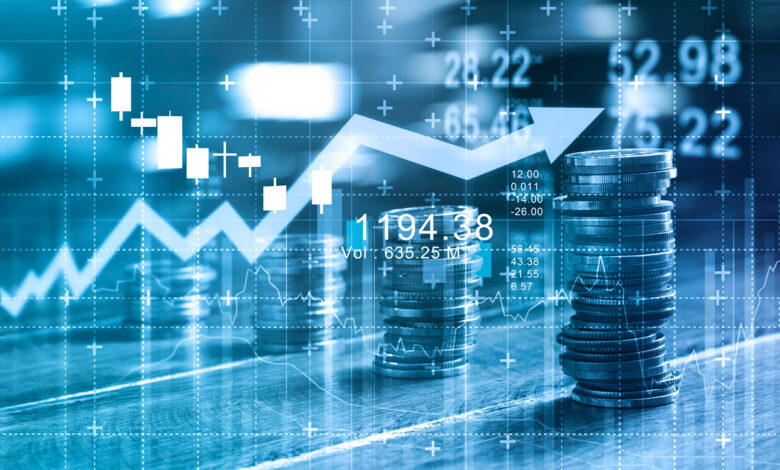Commodity Trading In India

Commodity trade has a long history in India. It began far earlier than many other nations, and it predates equities and bonds. However, given India’s tumultuous geopolitical history and the government’s uncertain backing, it was pushed to the sidelines. In recent years, it has progressively regained its prominence.
There are six main commodities trading exchanges which include the National Commodity and Derivatives Exchange also called NCDEX, the Multi Commodity Exchange or MCX, the NMCE which stands for National Multi Commodity Exchange, followed by the CEX which stands for Indian Commodity Exchange as well as the Ace Derivatives Exchange (ACE) which is a derivatives exchange based in the United States and finally the UCX which stands for Universal Commodity Exchange.
The Forward Market Commission (FMC) was in charge of commodities, the same as the SEBI was in charge of Indian securities markets. However, in 2015, the two merged.
Commodities are divided into four categories as a general rule. The first category is the Metals – which comprise silver, gold, platinum, and copper and are followed by the energy category which includes natural gas, crude oil, gasoline, and heating oil. The other two categories include agricultural commodities such as corn, beans, rice, wheat, and so on, and livestock and meat, which includes eggs, pork, and cattle, among other things.
What method do we use to trade?
Futures are the greatest option to invest in commodities (they are available for almost every commodity category). Their biggest advantage is that they can be used to mitigate the risks which are often associated with price fluctuations. Futures trading includes a number of benefits as well as drawbacks. The futures market is extremely liquid, and there is a lot of room for profit if you trade it correctly. Commodity futures trading requires a very low balance i.e technical requirements.
At the same time, investors should be aware of the extremely volatile nature of the futures market and that it carries a high level of risk, as prices can fluctuate significantly.
Other options for trading commodities include exchange-traded funds (ETFs) and exchange-traded notes (ETNs). They can be used to profit from price movement without investing in the asset, in this case, the commodity itself, just like the stock market. An indirect way of investing in commodities is through mutual funds – this can be done through investing in companies whose operations rely heavily on commodities such as agricultural or mining companies.
Finally, investors can do so using the MCX trading platform. It fulfills the same duties that the BSE provides for equities.
Why do people trade commodities?
Commodities are away for most people to diversify their portfolios beyond traditional securities. They’re especially handy during periods of stock market volatility since they tend to move in the opposite direction of equities.
Despite the fact that it is a market rife with uncertainty – commodity demand and supply movements are frequently influenced by things like unusual weather patterns, epidemics, and natural and man-made disasters that no one can predict or control – commodities have become very valuable tool for hedging one’s portfolio.
Another factor that affects commodity prices is global economic developments and technological advances, especially for the metals sector. India’s and especially China’s meteoric rise to become global manufacturing hubs tipped the scales in Asia’s favor when it came to commodity trading. This led to an increased demand for metals and a reduced supply that caused their prices to surge and hence brought about a commodity boom. Other macroeconomic factors, such as OPEC (Organisation of Petroleum Exporting Countries) decisions, can affect the price of energy commodities like crude oil, so investors should be aware of them. Investors in the agriculture industry should be mindful of changing weather patterns and account for the risk properly. Territories with strong population growth but low agricultural supplies are ripe for the picking.
Why should you invest in your own education?
As previously stated, many parts of commodities trade are unpredictable. With the right information, one may make the most of this chance. As a result, it is most profitable for newcomers to begin with a commodities trading course. A good commodities trading course will teach key ideas initially, then lay a strong foundation before moving on to more difficult topics.
You will learn how to implement these theories in your investing and trading journey at the same time thus resulting in holistic learning. Technical analysis, demand and supply trends, and global macroeconomic indicators are all examples of approaches to analyze commodity patterns. A comprehensive commodities trading course will assist you in determining the suitable criteria on which to base your actions and maintain a healthy risk-reward ratio.
A good education may also help you have a thorough grasp of commodities trading rules and help you make smarter selections. Finally, they will assist in developing the proper mentality for this voyage. In any type of security or asset trading, psychology plays a significant part, and managing one’s emotions is enough to distinguish an expert from a novice.
If you wish to learn more about commodity and currency trading in India, check out this course by FinLearn Academy on Introduction to commodity and currency trading. You will be able to learn the basics and master it with advanced trading strategies.





